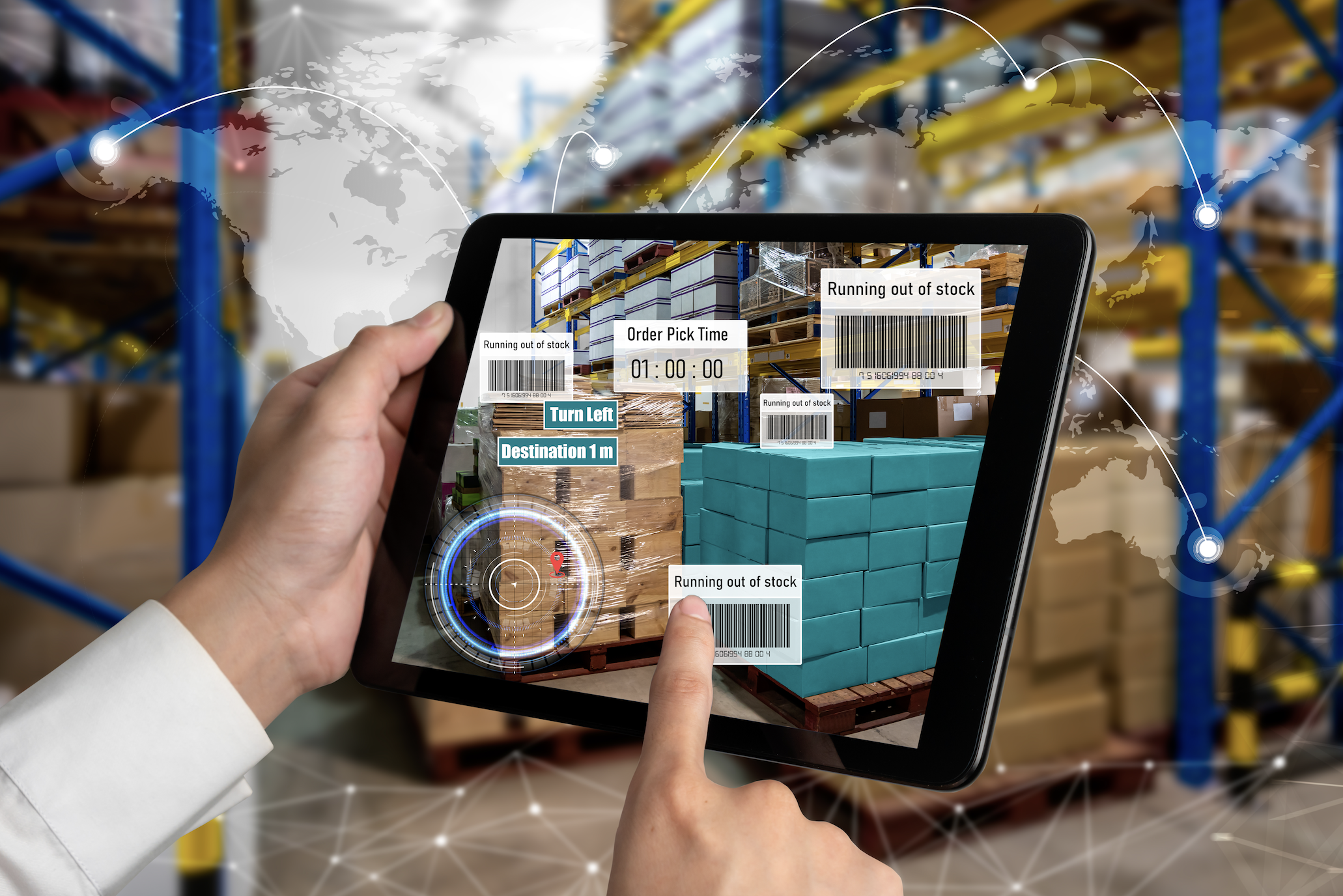Share this
Shipfusion’s 2022 Logistics Planning Guide: Part One
by Christie McLeod on Feb. 22, 2022

Choosing the right partner can make or break your company’s logistics, customer service, and repeat purchases. Using a fulfillment center like Shipfusion frees you from navigating the fulfillment landscape with zero stress. Below are some insights on how Shipfusion can take your business to the next level.
Poor execution is the primary reason why only 33% of all well-formulated logistic strategies succeed. The other 67% of these strategies fail during the implementation process. The failure to pay attention to the planning process ranks as the main reason for poor execution. Logistics planning is at the core of successfully executed strategies. Without proper planning, the process of managing logistics can be an absolute nightmare.
The ability to deliver the correct goods to the right people at the right time is what defines a perfect supply chain and fulfillment operation. However, at the heart of this perfection is a crucial function known as logistic planning within the supply chain and fulfillment circles. While this concept isn’t new within the eCommerce and retail context, most corporations are yet to embrace its benefits fully.
Does your business handle regular internal and external logistical processes? If yes, the concept of logistical planning is relevant to your operations. This guide breaks down what logistics planning encompasses, and it’s essential to the eCommerce and retail industry.
What is Logistics Planning
Logistics planning is the deliberate timing and positioning of inventory that leads to value creation. eCommerce companies should combine myriad functions into a well-laid-out plan that aims to create value and enhance a seamless supply chain structure. The process of designing a logistics plan should incorporate material handling, packaging, storage, order management, and transportation. The idea is to develop a solid logistical plan that adds value to your company through an efficient supply chain management system.
Logistics planning involves gathering information, then setting up structures that enhance your primary logistics function. Collecting this information helps a firm plan in case of fluctuations, disruptions, or changes in any section of the supply chain. A well-drafted logistics plan allows your business to remain responsive to the recurrent disruptions and market dynamics that may emerge along the way.
Logistics entail the implementation of complex operations within an organization. Logistics can be an absolute nightmare for businesses that depend on efficiency to drive revenue without proper planning. As such, logistics planning is at the heart of the eCommerce process. It’s essential to understand the three core elements of logistics planning.
The Three Main Aspects of Logistic Planning
To understand the concept of logistics planning better, it’s essential to consider the three principal aspects that make up this function.
Long-Term Goals
When working on a logistics plan, long-term goals form the basis of the design process. Some of the most critical long-term goals any business should set include customer satisfaction and defining your business’s competitive advantage. The other most important part of long-term goals when designing logistic plans is supply chain management. When designing your long-term goals, these three pillars should form the heart and soul of the process.
Means
Achieving these long-term goals is the other aspect of logistics planning that matters. In most cases, delivering value and utilizing the resources available to ensure successful plan implementation is often lacking in a business. The resources at your disposal are the means through which a logistic plan becomes effective. When setting up a logistics plan, the means to implement or execute your logistic strategy matters. Before commencing the logistical planning phase, consider the means through which you will achieve the intended result.
Process
The main goal of designing a logistic plan is to ensure that supply chains function seamlessly. Once you have the long-term goals well-defined, and you have also identified the means to achieve the goals, your next challenge should be the actual process of implementing the plan. The process stage involves defining the manner of executing the logistic strategy. It also involves other factors, such as managing change during the implementation process.
The Benefit of Logistics Planning
Businesses are about interests. You want to know the impact of every process before you invest your money to support it. Logistic planning has wide-ranging benefits to a business.
1.Satisfy Customer Demands Quicker
ECommerce thrives on customer satisfaction. Your ability to meet customer needs is among the core pillars of a successful online business. Well-planned logistic systems lead to better achievement of customer demands. If you can cut the wait time whenever customers request your products, you’ll likely build a solid customer base within a short time.
Logistics planning allows you to hone operations, maintain inventory, and secure fast shipping options ahead of time. Businesses that can meet these essential thresholds often meet customer demands quickly. This also translates to their ability to turn over high sales volumes.
For most eCommerce businesses, meeting customer demands can be a daunting process. This is why you also need to have an order fulfillment partner by your side beyond setting a logistics plan in place. Shipfusion offers a unique eCommerce fulfillment solution for you. Nothing can step in the way of an eCommerce business that has an elaborate logistics planning mechanism and a seasoned order fulfillment partner. Companies that embrace logistics planning often have the most fulfilled client base. Regardless of the disruptions that may affect the market, your firm has the assurance of satisfied customers as long as you have a well-crafted logistics roadmap.
2. Increase revenue
Of course, increased revenue is a natural consequence of all the other benefits your eCommerce business will derive from logistics planning. Even then, this is an essential benefit of logistics planning! After all, companies are in it to make revenue. A business that focuses on designing a solid logistics plan often wins over customers and expands the market reach.
The combination of satisfied customers, an expanded market reach, and a consistent flow of commodities automatically increase revenue. ECommerce businesses that design an elaborate logistics plan derive hefty profits in the long term. It’s even better when the logistic planning blueprint includes a partnership with a seasoned fulfillment facility like Shipfusion. Fulfillment centers have warehouses in multiple locations across the globe, making product penetration easy. This leads to higher profits.
3.Cut Supply Chain Costs
The process of managing customer and market demands can be overwhelming. Most times, you end up exceeding budgets to meet last-mile obligations. The extra costs can be overwhelming given that, in most cases, they are unbudgeted from the start. This is why eCommerce businesses need logistics planning. When you have a logistics plan in place, you rarely end up overspending on your budgets since you put all contingencies into account before commencing the process.
Logistics planning ensures that retail eCommerce businesses stay grounded. You rarely panic and make hasty decisions when you have a clear logistics plan for your supply chain. Logistic planning entails careful consideration of all the expenditures, contingencies, and changes in market dynamics that may affect costs. When you have a plan, it’s possible to tick boxes and review any hidden costs you may have failed to include in the first place.
Most experts advise that logistic planning precedes any other step when dispatching your product. This helps you have a clear roadmap of what you need to do to get your commodities in the market in the proper condition and within the right time, without incurring high costs. Part of the reason most retail eCommerce retail businesses opt to outsource the logistics process is to minimize costs.
You could consider outsourcing the logistics process to a seasoned fulfillment solution as an alternative. The advantage of this decision is that any additional costs accruing from the order fulfillment process aren’t your concern. In your logistics planning process, you may opt to outsource this critical function to a partner who offers eCommerce fulfillment solutions. The move saves you time and expenses.
Businesses that offer order fulfillment services such as Shipfusion have the resources necessary to reduce the costs of eCommerce distribution. The resources include employees, vast warehouses with state-of-the-art storage options, and robust inventory management digital tools. This can help you cut most costs that ordinarily affect your bottom line.
Stay tuned next week for Part Two of Shipfusion’s 2022 Logistics Planning Guide!
Shipfusion sets your business on autopilot and combines flexible, reliable fulfillment with powerful, real-time technology. Shipfusion has multiple fulfillment centers across the US and Canada– making it easy to manage your eCommerce business. For more information on how to set your business on autopilot, contact one of our fulfillment specialists today.
Share this
You May Also Like
These Related Articles

Logistics Planning: 3 Aspects You Need To Know

Shipfusion’s 2022 Logistics Planning Guide

How to Optimize Reverse Logistics in Ecommerce
- June 2025 (22)
- May 2025 (27)
- April 2025 (27)
- March 2025 (26)
- February 2025 (26)
- January 2025 (35)
- December 2024 (16)
- November 2024 (22)
- October 2024 (22)
- September 2024 (27)
- August 2024 (9)
- July 2024 (8)
- June 2024 (5)
- May 2024 (8)
- April 2024 (8)
- March 2024 (6)
- February 2024 (6)
- January 2024 (5)
- December 2023 (3)
- November 2023 (3)
- October 2023 (5)
- September 2023 (4)
- August 2023 (2)
- July 2023 (1)
- June 2023 (4)
- March 2023 (2)
- October 2022 (1)
- September 2022 (5)
- August 2022 (4)
- July 2022 (7)
- June 2022 (4)
- May 2022 (4)
- April 2022 (6)
- March 2022 (2)
- February 2022 (1)
- January 2022 (3)
- December 2021 (2)
- November 2021 (4)
- October 2021 (2)
- September 2021 (5)
- August 2021 (4)
- July 2021 (4)
- June 2021 (3)
- May 2021 (2)
- April 2021 (3)
- March 2021 (3)
- February 2021 (3)
- January 2021 (2)
- December 2020 (4)
- November 2020 (2)
- October 2020 (4)
- September 2020 (2)
- July 2020 (5)
- June 2020 (4)
- May 2020 (2)
- April 2020 (2)
- March 2020 (4)
- February 2020 (1)
- December 2019 (1)
- May 2018 (1)
- March 2018 (2)
- February 2018 (3)
- January 2018 (3)
- November 2017 (3)
- July 2017 (4)
- March 2017 (3)
- February 2017 (5)
- January 2017 (3)
- December 2016 (4)
- November 2016 (6)
- October 2016 (6)
- October 2015 (1)
- September 2015 (1)
- June 2015 (3)
- May 2015 (3)
- August 2014 (1)
- July 2014 (1)
- March 2014 (1)
- February 2014 (1)